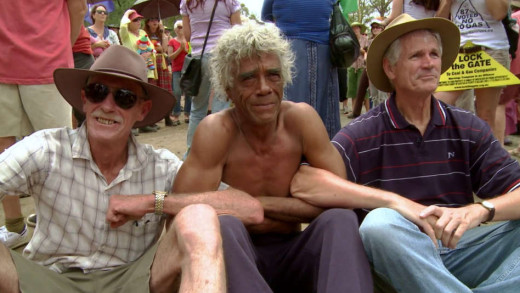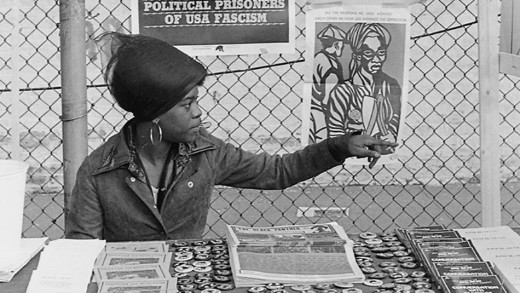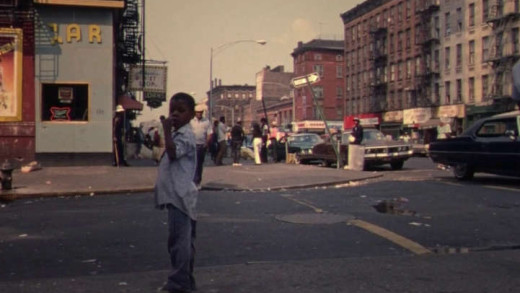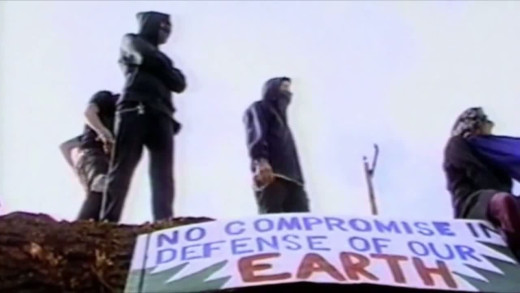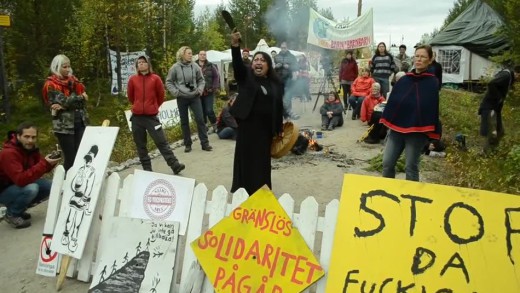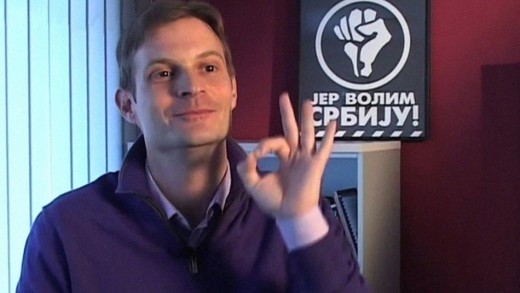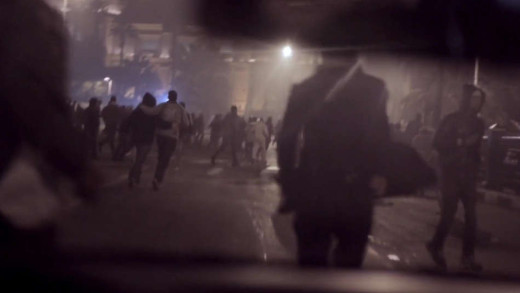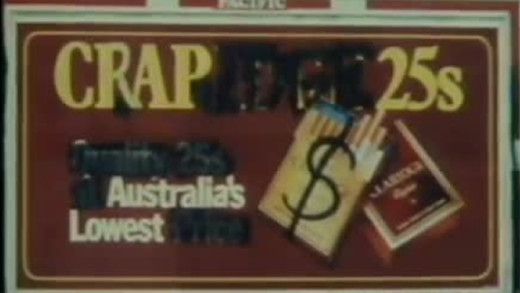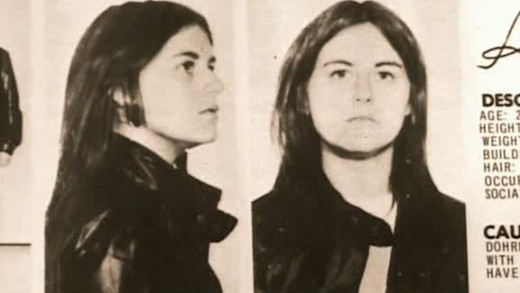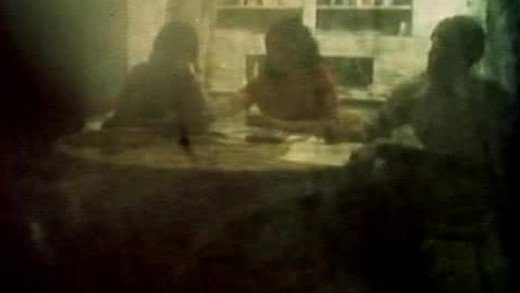The Bentley Effect recounts the story of citizens throughout the Northern Rivers shire of Australia protesting against coal-seam gas extraction. When the community first learns of the news, a critical mass of people from all walks of life--farmers, landowners, mums, dads, activists, and scientists--come together to rally against the invasion. But despite enormous public opposition, the gas industry and the State Government are determined to see their plan through. So the community changes tact and resorts to differing methods of civil disobedience and non-violent protest. This culminates in a music festival of sorts in Bentley, New South Wales, which brings together the community and also spurs them on to initiating political action.
1966, United States. A new revolutionary culture was emerging and it sought to overthrow the corrupt systems of power waging the invasion of Vietnam, amongst the struggle for equality and civil rights at home. Beginning with armed citizens' patrols to keep police accountable and challenge police brutality in Oakland California, The Black Panther Party put itself at the vanguard for social change, expanding in 1969 to community social programs, including free breakfast for school kids and community health clinics. This lead the FBI to call the movement "the greatest threat to the internal security of the country," and start an extensive government program called COINTELPRO to surveil, infiltrate, perjure, harass, discredit, destabilise and disintegrate the movement. This film chronicles the story arc of the Black Panthers successes and failures, through the voices of the people who were actually there: police, FBI informants, journalists, white supporters and detractors, and the Black Panthers themselves.
Using collated footage discovered in the cellar of Swedish Television some 30 years later after recording, The Black Power Mixtape is a film that examines the evolution of the Black Power movement in the United States from 1967 to 1975. Commentaries and interviews carry the film, from leading contemporary African-American artists, activists, musicians and scholars which is divided into 9 sections based chronologically on each successive year between 1967 and 1975. The film focuses on several topics and subjects relevant to the Black Power Movement including Opposition to United States involvement in the Vietnam War, the Black Panther Party, COINTELPRO, and the War on Drugs.
People from industrial civilisation are fast to defend it, saying that they depend on this way of life for survival. It's an addiction. But what if civilisation is the very thing that is killing us and everyone else around? How could we survive then? The Fuck-It Point is about this pervasive disabling mindset of civilisation, its true cost, why and how we need to stop it from killing the planet, and why most people from civilisation don't want to do this. Will you do what is necessary to stop this culture from killing the planet?
During the summer of 2013, a new area of occupied Sápmi (the northern parts of Fennoscandia in Europe) were under attack from the mining industry. If it were not for groups of brave resisters, the test blasting outside Jokkmokk in Lapland, Sweden, would have gone by without incident. The local Sámi people would have once again been exploited, and future generations poisoned without even a debate. But this time, something happened. The Gállok Rebellion tells the story of the resisters in Gállok, and shines a light on views which are not often televised. The film collates the efforts of many groups working together and serves as a call to action, to continue to protect the natural world which is under siege.
The Revolution Business examines the role of United States intelligence agencies in the recent revolutionary movements such as the Arab Spring and others by the use of "Revolution Consultants." Of particular interest is a Serbian man Srđa Popović, who formed an organisation called Отпор! (Otpor) which tought "non-violent struggle" in the overthrow of Slobodan Milošević in Serbia during the 1990s, and which has now gone on to inspire a new generation of activists. However, some political commentators like William Engdahl are convinced that Otpor is financed by the United States and has ties to intelligence agenices, also having dubious funding from sources such as the Rand Corporation, the Department of Defence, as well as various fronts such as the National Endowment for Democracy (NED), the International Republican Institute (IRI), the US Institute of Peace and the Ford Foundation--all of which have a long history of collaborating with the Pentagon, the State Department and the CIA in destabilising movements and usurping popular uprisings, removing their teeth.
The Square
The Square follows the anti-government protest movement in Egypt through the eyes of six very different activists, starting in Tahrir Square in 2011, up until the 2013 coup d'état. The film follows the activists on a life-changing journey through the euphoria of victory into the uncertainties and dangers of the current military rule, where everything they fought for is now under threat or teetering in the balance. The Square becomes an immersive experience, transporting the viewer into the intense emotional drama and personal stories behind the revolts. It is an inspirational account of people asserting their rights, struggling against multiple forces--from a brutal army dictatorship willing to crush protesters with military tanks, to a corrupt Muslim Brotherhood using mosques to manipulate voters; a struggle unfinished, unfolding.
The War of Words Down Under documents an insight into the radical campaign of the 1980s to ban advertising and promotion of cigarettes in Australia. The result is a movement of culture-jamming activists called B.U.G.A. U.P. or Billboard Utilising Graffitists Against Unhealthy Promotions; who deface, disrupt, remove and challenge smoking promotions and advertising wherever it appears—in shopping centres, sports fields, billboards, etc. The movement starts in inner-city Sydney in October 1979, later spreading to Melbourne, Hobart, Adelaide and Perth; with many of the members coming from professional backgrounds, including doctors and health workers. This film shows how direct-action can provoke and achieve social and political change, albeit a slow process, with success for this movement coming almost a decade later...
In the 1960s and 70s, the polarisation of the political situation in the United States was becoming acute with the Vietnam War abroad and civil rights at home being but the most obvious issues. For the youth political movement, the futile methods of peaceful protest led to the rise of an idealistic faction that undertook a more extreme approach to resistance. This faction, called the Weather Underground, attempted to team up with the Black Panthers to overthrow the US government—starting with street riots, escalating to bombing government targets. Thorough archival footage and interviews of the veterans of both sides, this film covers the movement, until changing times and disillusionment brought it to an end, alongside the FBI employing an illegal series of projects called COINTELPRO to hasten it...
Underground is a film about the Weather Underground Organisation—a group founded as a militant faction of the civil rights and anti-war movement of the 1960s and 1970s. The film combines interviews with members of the group after they went underground who explain how they became radicalised amongst the political happenings in the United States at the time, as well as the revolutionary struggles in Cuba, Russia and China, and the history of struggles over Native American rights and labour issues. Also detailed is the group's analysis of American society, addressing those who have inspired them, and further explaining the reasons behind their militancy, while also introducing the issue of tactics. We see the use of property destruction as a way to bring about change and destabilise the current political order. Underground takes an intimate look at the inner workings of the Weather Underground and their strong internal collective identity, providing a record of how a bunch of middle-class Americans became self-styled militant revolutionaries, raising questions not only about the merits of their struggle, but also about past and future radical actions.
